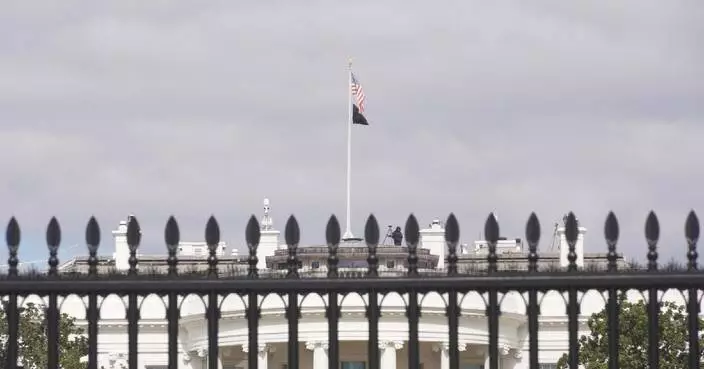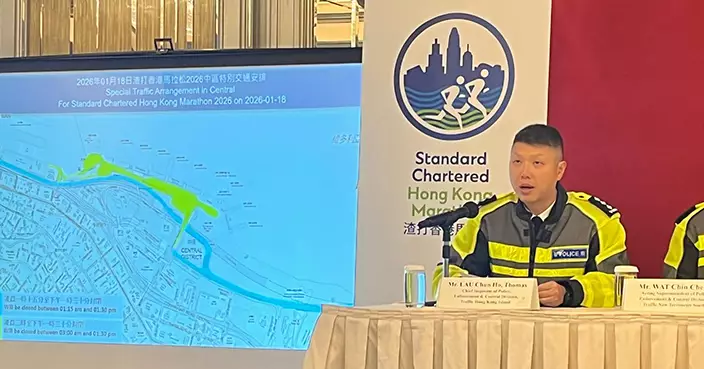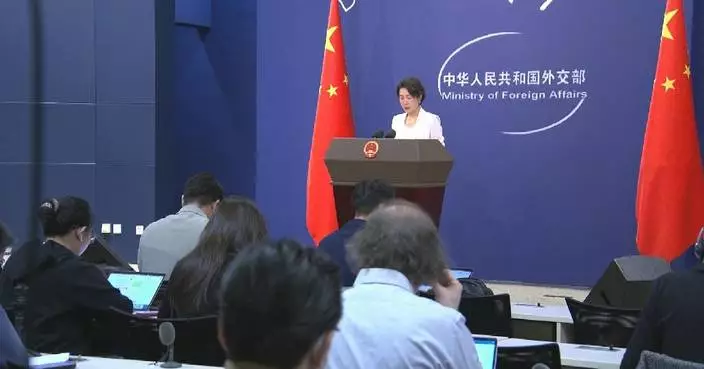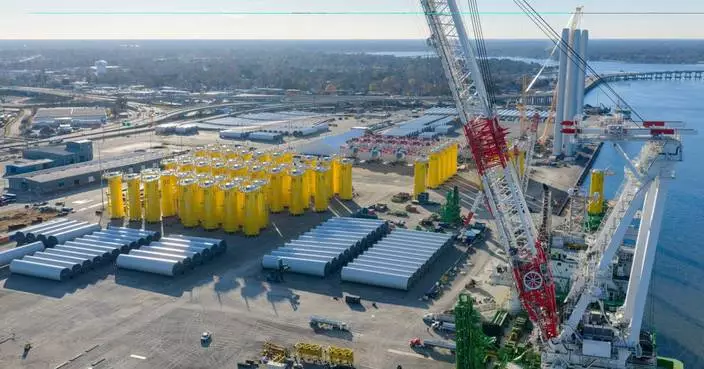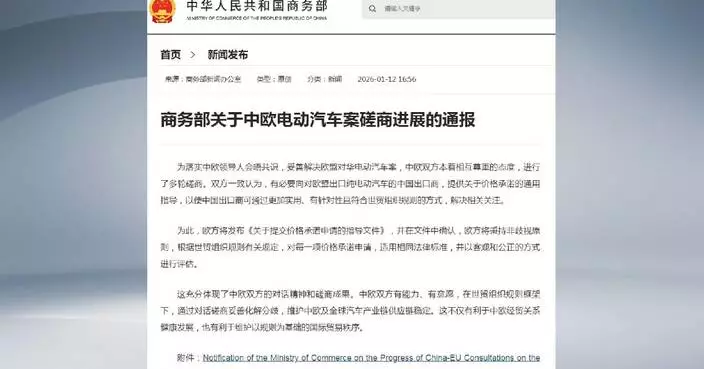Feature · News

China welcomes foreign enterprises, long-term capital to continue expanding investment in China: vice premier
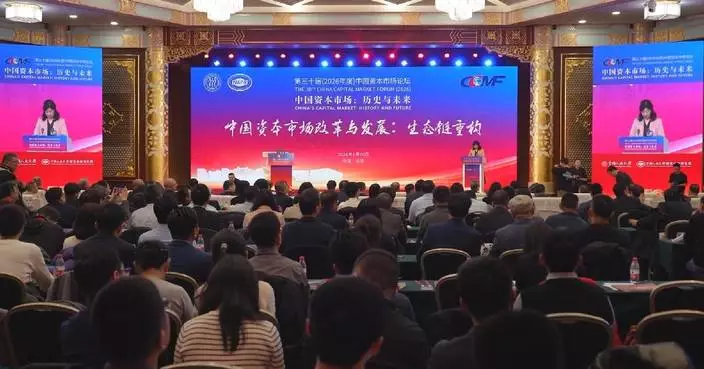
Capital market must coordinate investment, financing: expert

Traffic operating normally, internet remains restricted in Tehran

HK Express Soars as World's Safest Budget Airline Again

What to know about the Chicago doctor charged with murdering his ex-wife and her husband

AI-powered service platforms improve consumer experiences in China

BP China Insight : Trump's Actions Have Turned the EU into an Outdated Relic of History

BP China Insight : Beijing Strikes Back at Meta's "Grab Tech and Talent" Acquisition
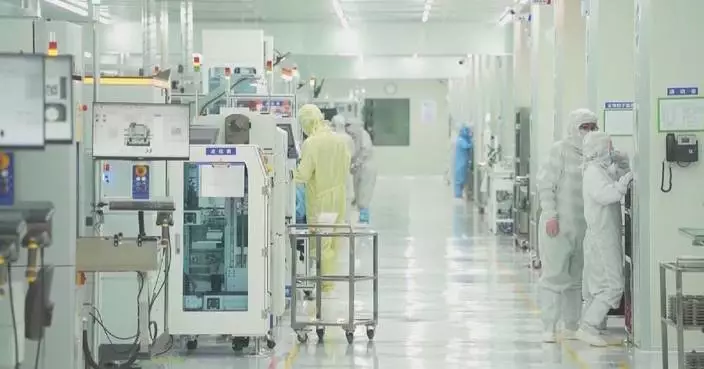
China issues landmark regulation on allocation of government investment funds

Xi emphasizes commitment to multilateralism, cooperation in latest diplomatic engagements
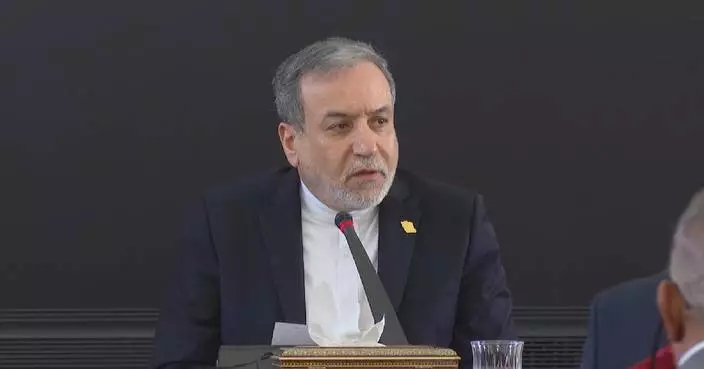
Mossad agents attempt to direct terrorist acts: Iranian FM

Apple calls on Google to help smarten up Siri and bring other AI features to the iPhone

The Trevor Project receives $45M from MacKenzie Scott after difficult years and federal funding cuts

Judge rejects lawyer's disputed bid to join ex-Venezuelan President Nicolás Maduro’s defense team

Why the Federal Reserve has historically been independent of the White House
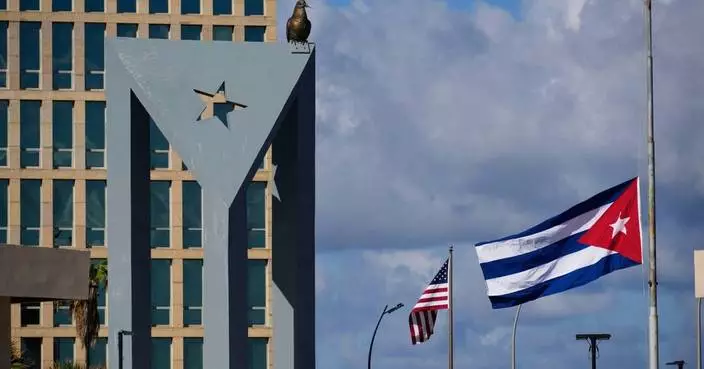
Cuba's president says no current talks with the US following Trump's threats

BP China Insight : Trump's Actions Have Turned the EU into an Outdated Relic of History

BP China Insight : Beijing Strikes Back at Meta's "Grab Tech and Talent" Acquisition
China issues landmark regulation on allocation of government investment funds
Xi emphasizes commitment to multilateralism, cooperation in latest diplomatic engagements
China welcomes foreign enterprises, long-term capital to continue expanding investment in China: vice premier
Capital market must coordinate investment, financing: expert
Traffic operating normally, internet remains restricted in Tehran

HK Express Soars as World's Safest Budget Airline Again

What to know about the Chicago doctor charged with murdering his ex-wife and her husband
AI-powered service platforms improve consumer experiences in China
Mossad agents attempt to direct terrorist acts: Iranian FM

Apple calls on Google to help smarten up Siri and bring other AI features to the iPhone

The Trevor Project receives $45M from MacKenzie Scott after difficult years and federal funding cuts

Judge rejects lawyer's disputed bid to join ex-Venezuelan President Nicolás Maduro’s defense team

Why the Federal Reserve has historically been independent of the White House

Cuba's president says no current talks with the US following Trump's threats
Feature·Bloggers

【What Say You?】The Gavel vs. The Sanction: Hong Kong’s Judiciary Stands Firm

【Bastille Commentary】Chicken-hearted Conservatives: Sanctioning Hong Kong Judges While Trump Runs Wild

【What Say You?】Trump’s “Maduro Grab” Gets a Glossy Spin by the Usual Suspects

【What Say You?】Trump's Judicial Theater: Maduro's Fate Already Sealed

【Deep Throat】Trump's Venezuelan Oil Grab: Big Oil Not Playing Along?

The Most Laughable Lie of the New Year: Jimmy Lai's "Grave Illness" Falls Apart Under Five Hard Facts

FPT Becomes Vietnam’s First Company to Achieve ISO/IEC 42001:2023 AI Management System Accredited Certification
- People inside Iran describe heavy security and scattered damage in first calls to outside world
- Venus Williams loses in 1st round of Australian Open tuneup event in Hobart
- Tensions flare in Minnesota as protesters and federal agents repeatedly square off
- Former Apple Daily staff plead for lighter sentences in landmark Hong Kong national security case
- Families of prisoners in Venezuela wait in anguish as promised releases trickle
- Bureau of Dangerous Goods Announces Updated Hazmat University Online Training Courses for 2026
- Epirus Bank Selects NCR Atleos to Modernize and Expand ATM Network Across Greece
- Trump will visit a Ford factory and promote manufacturing in Detroit
- Former Navy sailor sentenced to 16 years for selling information about ships to Chinese intelligence

Brazil in midst of heatwave with more extreme temperatures expected
- UN chief urges diplomacy amid US military threats against Iran: spokesperson
- China-EU agreement on price undertaking guidance for EV exports to stabilize supply chains: analyst
- Japan's 10-year gov't bond yield hits 27-year high: media
- Venezuelan schools resume after US attacks
- Gold, silver prices climb to record highs on Monday
- Commercial recoverable spacecraft completes suborbital test flight in China
- U.S. stocks close higher amid criminal probe into Fed chair Powell
- Chinese yuan strengthens to 7.0103 against USD Tuesday
- U.S. dollar ticks down

HTX Launches SunPump Ecosystem Trading Competition Round 2, Offering a 10,000 USDT Prize Pool
- Swiss-Belhotel International Strengthens Africa Portfolio with the Launch of The Gama by Swiss-Belhotel, Kilimani, Nairobi
- Rhenus Group awarded EcoVadis Platinum Medal, placing in the top 1% globally
- Ready Server Announces Strategic Expansion into Japan with AT TOKYO Data Centre
- DoxAI Appoints Former Macquarie Capital Executive Roberto Purcaro to its Board of Directors to Accelerate Global Expansion
- AISpeech's Smart Mobility Solutions Debut at CES 2026
- ETO Markets Strengthens Global Compliance Framework with Mauritius FSC License
- SHAREit Group Upgrades to AI-Powered Mobile Ad Platform to Drive Growth in Emerging Markets
- DOJ investigation of Fed Chair Powell sparks backlash, support for Fed independence
- Wyndham Enhances Position in South Korea with First Managed Hotel Opening

Pentagon is embracing Musk's Grok AI chatbot as it draws global outcry
- Meta names former Trump adviser Dina Powell McCormick as president and vice chairman
- Malaysia and Indonesia become the first countries to block Musk’s Grok over sexualized AI images
- Google teams up with Walmart and other retailers to enable shopping within Gemini AI chatbot
- VR headsets are 'hope machines' inside California prisons, offering escape and practical experience
- Doctors say changes to US vaccine recommendations are confusing parents and could harm kids
- Strength training is crucial after menopause. How to make the most of your workouts
- Meta lines up massive supply of nuclear power to energize AI data centers
- From climbing vacuums to cyber pets: Some highlights of CES 2026
- Musk's Grok chatbot restricts image generation after global backlash to sexualized deepfakes

PBS weekend newscasts shut down due to funding cuts, replaced by single-topic programs
- 'Joe Dirt' tribute takes top prize in Pennsylvania Farm Show mullet contest
- Music honcho L.A. Reid settles with ex-recording executive who accused him of sexual assault
- Celebrities embrace black and old Hollywood glamour for Golden Globes red carpet
- Milan prison hosts concert with instruments made by inmates from migrant smugglers’ boats
- Celebrity birthdays for the week of Jan. 18-24 includes Mariska Hargitay and Dolly Parton
- Inside the Golden Globes: The reunions and moments the telecast didn't show
- Photos of 20-year-olds gathering in kimonos for Coming of Age Day ceremony in Japan
- See top photos of stars on the 2026 Golden Globe Awards red carpet
- Golden Globe highlights: Brazil on a streak, Amy Poehler's pod wins and Seth Rogen comes full-circle

Clippers star James Harden passes Shaquille O'Neal for 9th place on the NBA's all-time scoring list
- Mike Tomlin and the Steelers face familiar questions after their latest early playoff exit
- Keyonte George shines as Jazz defeat Cavaliers 123-112
- Leonard scores 35, Harden moves to 9th place on NBA's scoring list as Clippers beat Hornets 117-109
- Kraken rally from 2 goals down and beat Rangers 4-2
- William Nylander's OT goal gives Leafs 4-3 victory, snaps Avalanche's 17-game home win streak
- Texans stifle Aaron Rodgers and the Steelers 30-6 for franchise's 1st road playoff win
- Jason Robertson strikes late in the third period to help send Stars to 3-1 victory over Kings
- Monk hits 7 3-pointers, scores 26 points as Kings top Lakers 124-112; Doncic scores 42 in loss
- No. 1 Indiana, No. 10 Miami should be near full strength for national championship game
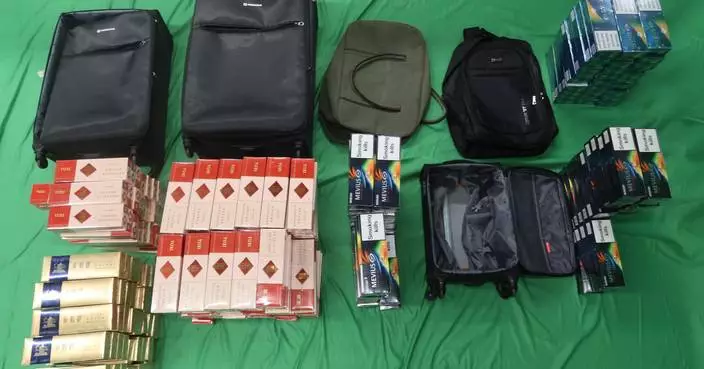
Man Sentenced to Six Months for Smuggling $258,300 in Duty-Not-Paid Cigarettes at Hong Kong Airport
- HKMA Announces Notes Exchange for Chinese New Year from February 3 to 16, Encourages Electronic Lai-See.
- Hong Kong Customs Seizes $4.8 Million in Suspected Counterfeit Goods at Airport
- Owner Fined $66,040 for Ignoring Building Removal Order in Tuen Mun Case
- Labour Department Investigates Fatal Construction Accident in Kai Tak, Urges Enhanced Safety Measures
- Fatal Traffic Accident in Sham Shui Po Claims Life of 48-Year-Old Driver
- Chan Kin-por Suspends Public Roles to Focus on Wang Fuk Court Fire Investigation
- Civil Aviation Department Completes Successful Aeronautical Search and Rescue Exercise Near Lantau Island
- HKMA Warns Public About Scams Involving Fraudulent Bank Websites and Phishing Emails
- No New Chikungunya Fever Cases Reported in Hong Kong; Authorities Enhance Mosquito Control Measures

Somalia revokes all pacts with UAE amid diplomatic rifts
- US warplanes increase activity at Al Udeid Air Base in Qatar while US citizens urged to leave Iran
- Tensions escalate as IDF operations continue in Gaza, West Bank
- Russia reports strikes on Ukrainian energy, transportation facilities; Ukraine claims repelling Russian attacks
- Minnesota, Illinois sue Trump administration over surge of federal immigration enforcement
- Trump says countries doing business with Iran face 25 pct tariff
- Cuban president denies dialogue with US, reaffirms willingness to negotiate
- Iran's nationwide demonstrations oppose U.S., Israel interference
- China, Canada should leverage complementarity for mutual benefit: former Canadian PM
- Death toll in central Philippine landfill collapse rises to eight
Category · News

Brazil in midst of heatwave with more extreme temperatures expected

FPT Becomes Vietnam’s First Company to Achieve ISO/IEC 42001:2023 AI Management System Accredited Certification

People inside Iran describe heavy security and scattered damage in first calls to outside world

Clippers star James Harden passes Shaquille O'Neal for 9th place on the NBA's all-time scoring list

Man Sentenced to Six Months for Smuggling $258,300 in Duty-Not-Paid Cigarettes at Hong Kong Airport
UN chief urges diplomacy amid US military threats against Iran: spokesperson

Mike Tomlin and the Steelers face familiar questions after their latest early playoff exit

HTX Launches SunPump Ecosystem Trading Competition Round 2, Offering a 10,000 USDT Prize Pool
China-EU agreement on price undertaking guidance for EV exports to stabilize supply chains: analyst

Venus Williams loses in 1st round of Australian Open tuneup event in Hobart

Keyonte George shines as Jazz defeat Cavaliers 123-112

Leonard scores 35, Harden moves to 9th place on NBA's scoring list as Clippers beat Hornets 117-109

Kraken rally from 2 goals down and beat Rangers 4-2
Japan's 10-year gov't bond yield hits 27-year high: media

William Nylander's OT goal gives Leafs 4-3 victory, snaps Avalanche's 17-game home win streak
Venezuelan schools resume after US attacks
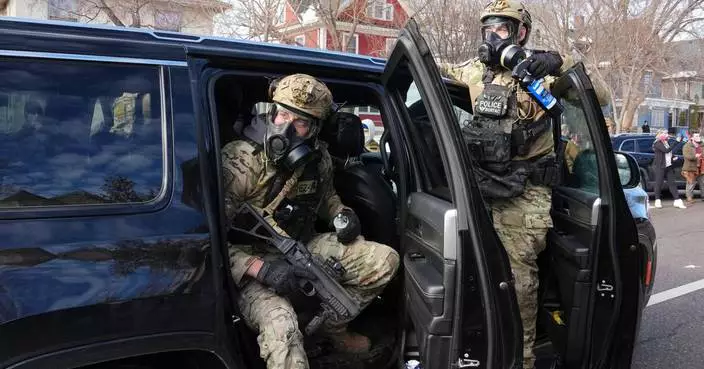
Tensions flare in Minnesota as protesters and federal agents repeatedly square off

Swiss-Belhotel International Strengthens Africa Portfolio with the Launch of The Gama by Swiss-Belhotel, Kilimani, Nairobi
Gold, silver prices climb to record highs on Monday
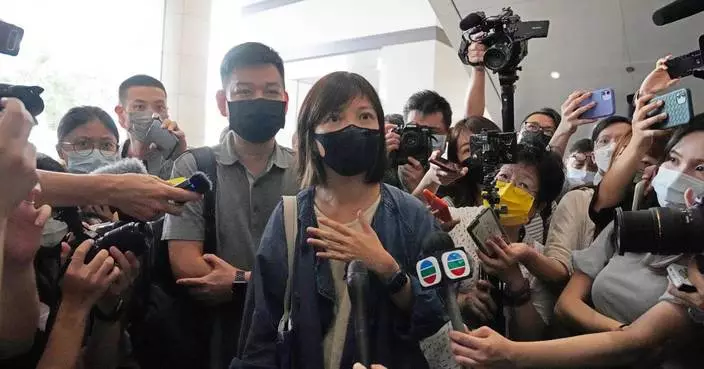
Former Apple Daily staff plead for lighter sentences in landmark Hong Kong national security case

Rhenus Group awarded EcoVadis Platinum Medal, placing in the top 1% globally

Texans stifle Aaron Rodgers and the Steelers 30-6 for franchise's 1st road playoff win

Jason Robertson strikes late in the third period to help send Stars to 3-1 victory over Kings

Monk hits 7 3-pointers, scores 26 points as Kings top Lakers 124-112; Doncic scores 42 in loss
Commercial recoverable spacecraft completes suborbital test flight in China

No. 1 Indiana, No. 10 Miami should be near full strength for national championship game

Ready Server Announces Strategic Expansion into Japan with AT TOKYO Data Centre
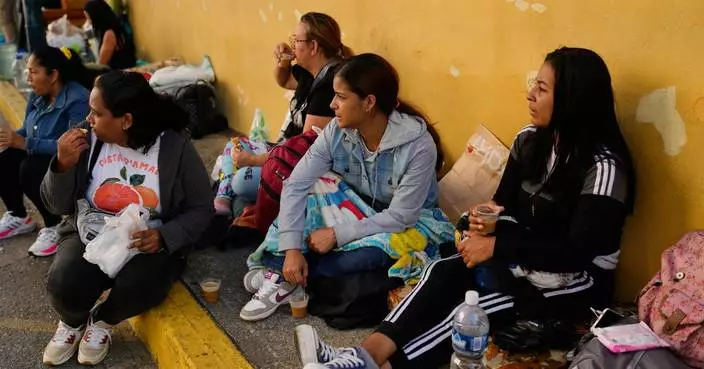
Families of prisoners in Venezuela wait in anguish as promised releases trickle

Bureau of Dangerous Goods Announces Updated Hazmat University Online Training Courses for 2026

Epirus Bank Selects NCR Atleos to Modernize and Expand ATM Network Across Greece

Trump will visit a Ford factory and promote manufacturing in Detroit

Blackhawks forward Connor Bedard misses loss to Oilers because of an illness

Former Navy sailor sentenced to 16 years for selling information about ships to Chinese intelligence

Texans, Patriots, 49ers, Bills, Bears and Rams advance to NFL's divisional round

McDavid and Bouchard help the Oilers beat the Blackhawks 4-1

Flagg posts 27 points, 3 steals to help Mavericks beat the Nets 113-105

DoxAI Appoints Former Macquarie Capital Executive Roberto Purcaro to its Board of Directors to Accelerate Global Expansion

Former Raptors star Kyle Lowry gets huge ovation in four-quarter cameo as 76ers win in Toronto

The Blind Sailor Takes the Stage at WEF: "HIRO’s CHOICE" Project to Set Sail

HKMA Announces Notes Exchange for Chinese New Year from February 3 to 16, Encourages Electronic Lai-See.

Titans continue coaching search with interview of former Falcons coach Raheem Morris, AP source says
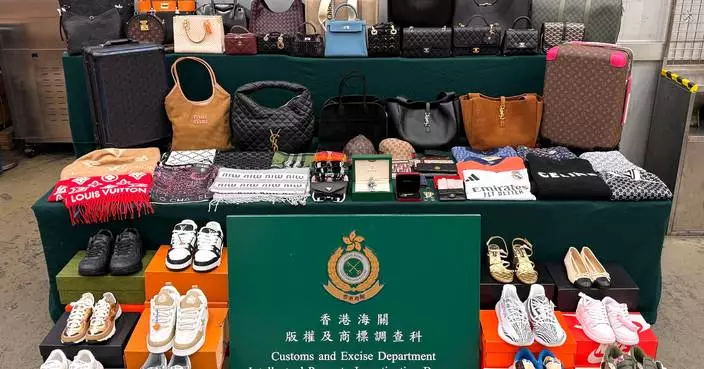
Hong Kong Customs Seizes $4.8 Million in Suspected Counterfeit Goods at Airport

Jesper Bratt, Ondrej Palat each score 2 goals as Devils beat Wild 5-2 to snap four-game skid
U.S. stocks close higher amid criminal probe into Fed chair Powell

Canadiens defeat Canucks 6-3 with 3-goal outburst in third period

AISpeech's Smart Mobility Solutions Debut at CES 2026
Chinese yuan strengthens to 7.0103 against USD Tuesday

Maxey scores 33 as 76ers use 80-point first half to beat Raptors 115-102

Copp scores in OT, lifts Red Wings to 4-3 win over Hurricanes after retiring Sergei Fedorov's jersey
U.S. dollar ticks down

Catton scores tiebreaking goal in 3rd period as Kraken rally from 2 goals down and beat Rangers 4-2

Lightning beat Flyers for 10th straight win as Cooper notches 600th win

ETO Markets Strengthens Global Compliance Framework with Mauritius FSC License

Pascal Siakam and Pacers nip Celtics 98-96 for 1st 3-game win streak of season

Owner Fined $66,040 for Ignoring Building Removal Order in Tuen Mun Case
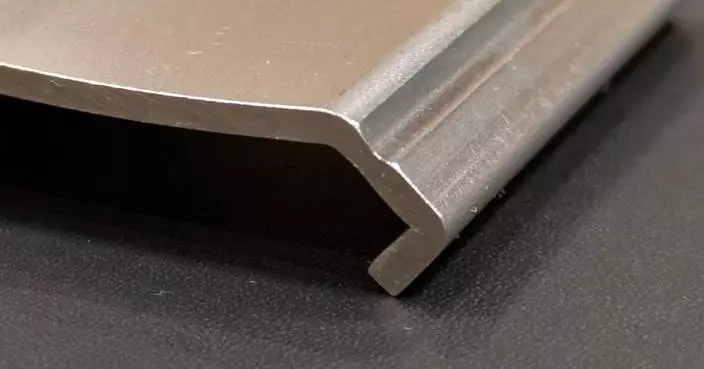
NIPPON KINZOKU Launches Full-Scale Expansion of “Eco-Product” Using Innovative Composite Metal Forming Technology Based on “Fine Profile”
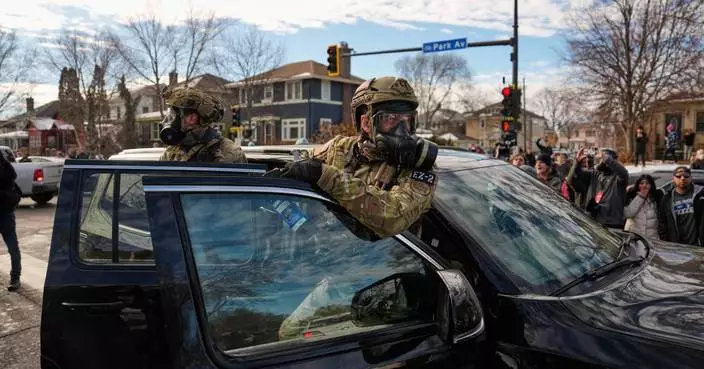
Photos of tensions between federal officers and locals in Minneapolis

Jazz bounce back after a 55-point loss and beat Cavaliers 123-112

SHAREit Group Upgrades to AI-Powered Mobile Ad Platform to Drive Growth in Emerging Markets

DOJ investigation of Fed Chair Powell sparks backlash, support for Fed independence

Pentagon is embracing Musk's Grok AI chatbot as it draws global outcry

Wyndham Enhances Position in South Korea with First Managed Hotel Opening

What to know about Brooks Koepka's return to the PGA Tour after 4 years with LIV Golf

Schaeffler appoints Maximilian Fiedler as Regional Chief Executive Officer Asia/Pacific

Seahawks begin preparing for 49ers after both coordinators interview for head coaching jobs

The Latest: Trump says Iran proposed negotiations as hundreds killed in protests
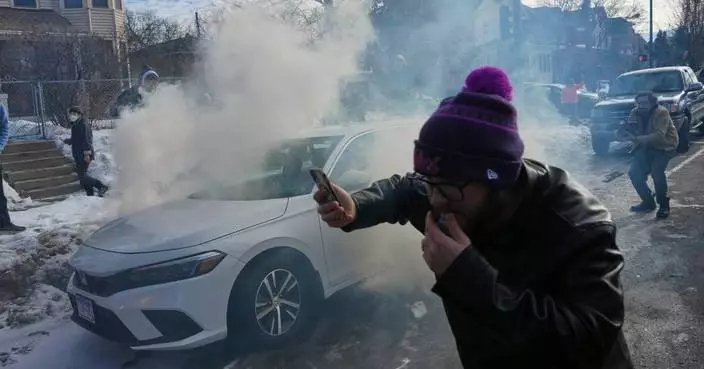
Minnesota and the Twin Cities sue the federal government to stop the immigration crackdown
Somalia revokes all pacts with UAE amid diplomatic rifts

Falcons interview John Harbaugh and Mike McDaniel as they continue search to replace Raheem Morris
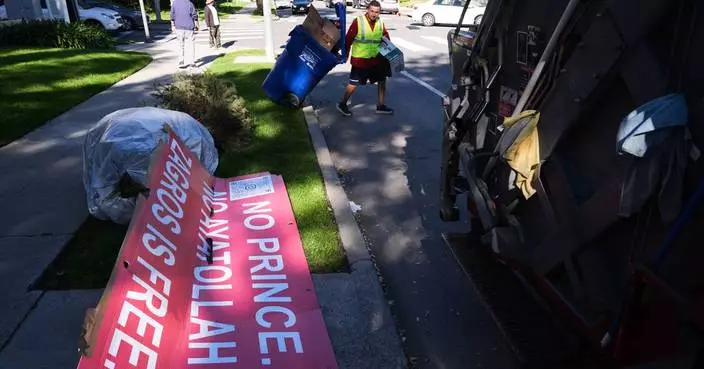
Man accused of recklessly driving U-Haul into Iran protest in Los Angeles, police say

Cameron Knowles promoted to coach of Major League Soccer's Minnesota United
US warplanes increase activity at Al Udeid Air Base in Qatar while US citizens urged to leave Iran

PBS weekend newscasts shut down due to funding cuts, replaced by single-topic programs

Zohran Mamdani and his wife move into NYC mayoral mansion, leaving behind 1-bedroom apartment

Trump holds off on military action against Iran's protest crackdown as he 'explores' Tehran messages
Tensions escalate as IDF operations continue in Gaza, West Bank
Russia reports strikes on Ukrainian energy, transportation facilities; Ukraine claims repelling Russian attacks

Red Wings retire Sergei Fedorov's No. 91 jersey and he says leaving Detroit was a huge mistake

Brooks Koepka is coming back to the PGA Tour. Here's what some of his peers think

The Latest: Minnesota and the Twin Cities sue federal government to stop immigration crackdown
Minnesota, Illinois sue Trump administration over surge of federal immigration enforcement

AI Takes Airport Travel as 1ST Airport Taxis and UK Hubs Turn to Predictive Technology

Mississippi man accused of killing 6 people, including a 7-year-old, pleads not guilty

Court says Trump admin illegally blocked billions in clean energy grants to Democratic states






